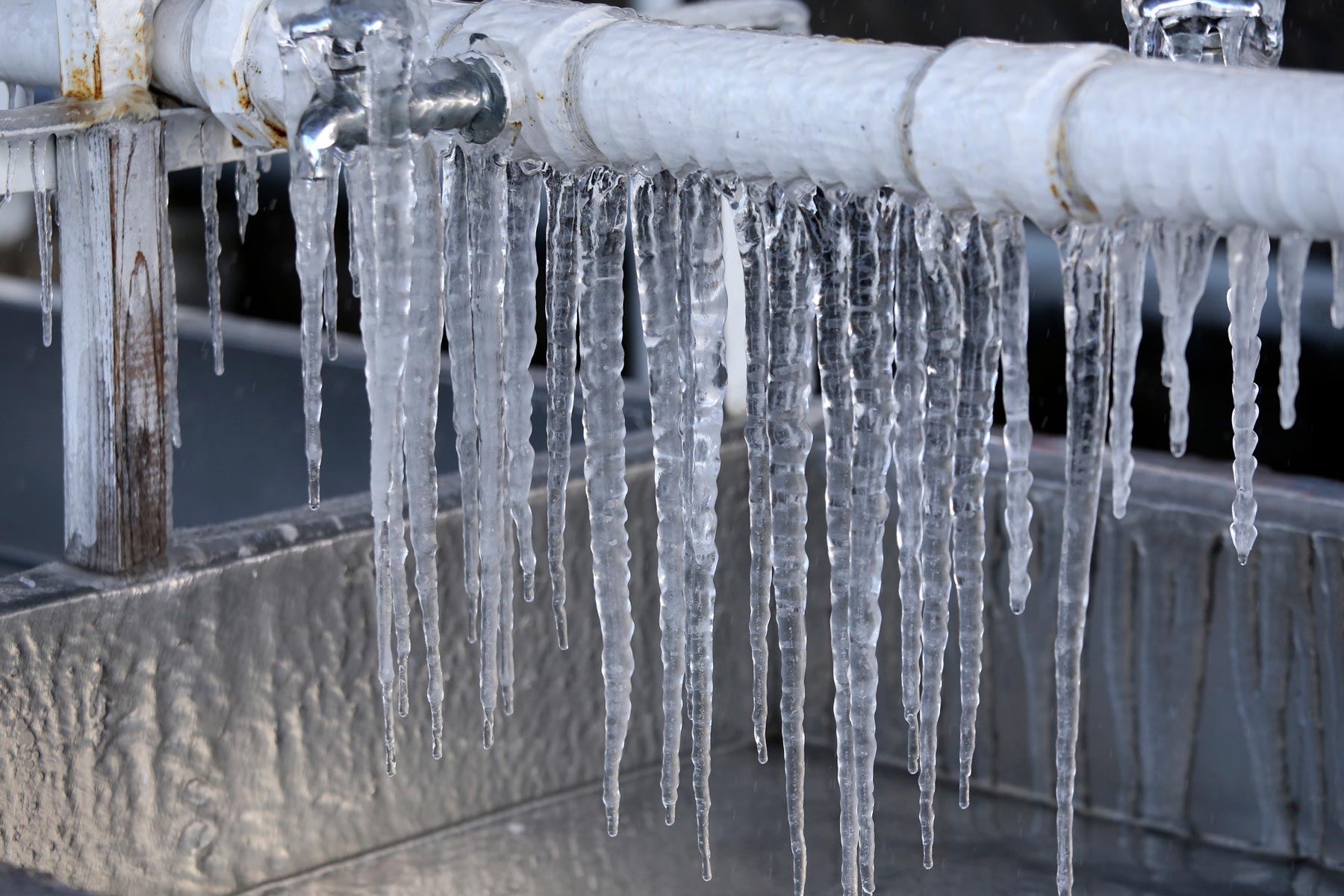Important Tips to Prevent Frozen Pipes in Winter
Important Tips to Prevent Frozen Pipes in Winter
Blog Article
Almost everyone may have their own individual conception when it comes to Winter Plumbing Precautions: Preventing Frozen Pipes.

Winter can ruin your pipes, specifically by freezing pipelines. Right here's exactly how to avoid it from occurring and what to do if it does.
Introduction
As temperatures decline, the threat of icy pipelines rises, potentially resulting in costly repairs and water damage. Recognizing just how to avoid icy pipelines is critical for home owners in cold climates.
Prevention Tips
Insulating prone pipes
Wrap pipes in insulation sleeves or make use of heat tape to safeguard them from freezing temperature levels. Focus on pipelines in unheated or outside locations of the home.
Home heating strategies
Keep indoor areas appropriately heated, especially areas with plumbing. Open up closet doors to allow cozy air to distribute around pipes under sinks.
Just how to recognize frozen pipelines
Seek reduced water flow from faucets, unusual odors or noises from pipes, and noticeable frost on revealed pipelines.
Long-Term Solutions
Architectural adjustments
Consider rerouting pipes away from outside wall surfaces or unheated locations. Add extra insulation to attics, basements, and crawl spaces.
Updating insulation
Buy top notch insulation for pipelines, attic rooms, and wall surfaces. Appropriate insulation assists maintain constant temperature levels and decreases the danger of frozen pipelines.
Shielding Outside Pipes
Garden hose pipes and outside taps
Separate and drain yard hoses prior to wintertime. Install frost-proof spigots or cover outdoor taps with protected caps.
Recognizing Icy Pipes
What triggers pipelines to freeze?
Pipelines ice up when subjected to temperatures listed below 32 ° F (0 ° C) for extended durations. As water inside the pipes freezes, it broadens, putting pressure on the pipe wall surfaces and possibly causing them to burst.
Risks and problems
Icy pipelines can lead to water supply interruptions, residential or commercial property damage, and expensive fixings. Ruptured pipes can flooding homes and trigger substantial structural damage.
Indicators of Frozen Piping
Recognizing icy pipes early can stop them from breaking.
What to Do If Your Pipes Freeze
Immediate actions to take
If you believe frozen pipelines, maintain taps open up to soothe pressure as the ice thaws. Make use of a hairdryer or towels soaked in warm water to thaw pipes gradually.
Verdict
Preventing frozen pipelines calls for proactive measures and fast responses. By recognizing the reasons, signs, and safety nets, home owners can safeguard their plumbing during winter.
Helpful Tips to Prevent Frozen Pipes this Winter
UNDERSTANDING THE BASICS: WHY PIPES FREEZE AND WHY IT’S A PROBLEM
Water freezing inside pipes is common during the winter months, but understanding why pipes freeze, and the potential problems it can cause is crucial in preventing such incidents. This section will delve into the basics of why pipes freeze and the associated problems that may arise.
THE SCIENCE BEHIND FROZEN PIPES
When water reaches freezing temperatures, it undergoes a physical transformation and solidifies into ice. This expansion of water as it freezes is the primary reason pipes can burst. As the water inside the pipe freezes, it expands, creating immense pressure on the walls. If the pressure becomes too great, the pipe can crack or rupture, leading to leaks and water damage.
FACTORS THAT CONTRIBUTE TO PIPE FREEZING
Low Temperatures: Extremely cold weather, especially below freezing, increases the risk of pipes freezing. Uninsulated or Poorly Insulated Pipes: Pipes located in unheated areas, such as basements, crawl spaces, or attics, are more prone to freezing. Insufficient insulation or lack of insulation altogether exacerbates the problem. Exterior Wall Exposure: Pipes running along exterior walls are susceptible to freezing as they encounter colder temperatures outside. Lack of Heating or Temperature Regulation: Inadequate heating or inconsistent temperature control in your home can contribute to frozen pipes. PROBLEMS CAUSED BY FROZEN PIPES
- Pipe Bursting: As mentioned earlier, the expansion of water as it freezes can cause pipes to burst, resulting in significant water damage.
- Water Damage: When pipes burst, it can lead to flooding and water damage to your property, including walls, ceilings, flooring, and personal belongings.
- Structural Damage: Prolonged exposure to water from burst pipes can compromise the structural integrity of your home, leading to costly repairs.
- Mold and Mildew Growth: Excess moisture from water damage can create a favorable environment for mold and mildew growth, posing health risks to occupants.
- Disrupted Water Supply: Frozen pipes can also result in a complete or partial loss of water supply until the issue is resolved.
WHY CERTAIN PIPES ARE MORE PRONE TO FREEZING
- Location: Pipes located in unheated or poorly insulated areas, such as basements, crawl spaces, attics, or exterior walls, are at higher risk of freezing.
- Exterior Pipes: Outdoor pipes, such as those used for irrigation or exposed plumbing, are particularly vulnerable to freezing as they are directly exposed to the elements.
- Supply Lines: Pipes that carry water from the main water supply into your home, including the main water line, are critical to protect as freezing in these lines can affect your entire plumbing system.
- Underground Pipes: Pipes buried underground, such as those connected to sprinkler systems or outdoor faucets, can be susceptible to freezing if not properly insulated.
https://busybusy.com/blog/helpful-tips-to-prevent-frozen-pipes-this-winter/

I have been very involved in How To Avoid Freezing Pipes and I really hope you liked my blog posting. Enjoyed our review? Please share it. Help another person discover it. Thanks for taking the time to read it.
Click Here Report this page